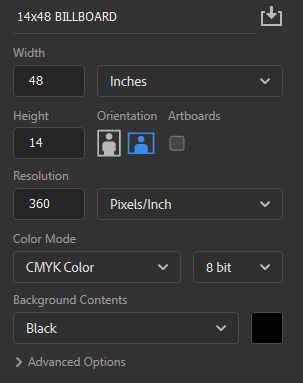- US Web Coated (SWOP) v2. US Web Uncoated v2; US Sheetfed Coated v2; US Sheetfed Uncoated v2; Coated FOGRA27 (ISO 12647-2:2004) Web Coated FOGRA28 (ISO 12647-2:2004) Uncoated FOGRA29 (ISO 12647-2:2004) Coated FOGRA39 (ISO 12647-2:2004) Japan Web Coated (Ad) Japan Color 2001 Coated; Japan Color 2001 Uncoated; Japan Color 2002 Newspaper.
- Under 'Destination Space' select 'U.S. Web Coated (SWOP) v2; Adobe Illustrator. Click Edit Assign Profile; Select 'Profile' and in the drop-down menu select 'U.S. Web Coated (SWOP) v2; Adobe InDesign. Adobe InDesign defaults to a CMYK color profile. There is no need to convert your InDesign document to CMYK or to set a color mode when.
Printing process definition: Web Offset CTP plates ISO 2846-1 Inks - Variable screen frequency / G7 Methodology / Grade #3 paper Characterization data. Reference Name: CGATS TR003. Target data: CGATS-SWOP-TR003-2007.zip.
To get the best predictable results when sending your designs/photos for commercial offset printing you need to select a suitable CMYK profile that best matches the destination printing conditions before converting images to cmyk. Graphic design software such as Adobe's Creative Suite (Photoshop, Indesign and Illustrator) come with ICC profile presets for sheetfed and web offset presses and various coated and uncoated paper types. There are profiles for North America, Europe and Japan who each have different printing standards.
In an ideal world, there would be an international standard that all printers globally would follow for each printing method, with standard inks, paper and press setups, and there would be just one set of ICC profiles for each of these conditions. This would make life easier for designers, who often don't know who is going to be printing their designs. It would be a safe bet that something printed in the UK would be a close match to the same design printed in the US, for example. Lets hope that this will all happen in the future!
If you know who will be doing the printing, then for best results, ask which profile you should use, they may even supply you with a custom profile specifically for their setup. But if you don't know who will be doing the printing, which is often the case these days, then use the profiles listed below.
Printing in the UK and Europe
The international standard ISO 12647/2-2004 is being used by more and more printers in the UK and Europe these days. The German printing research organisation (FOGRA) developed this standard by testing a large number of presses using a range of paper types and produced a set of datasets. These were then used to create the ICC profiles 'ISO coated.icc' and 'ISO web coated.icc' for sheetfed litho on coated papers, and web offset on lightweight coated, respectfully (FOGRA27).
These cmyk profiles have now been replaced with a new Version-2 update based on a new FOGRA39 dataset: as not all printers were able to reproduce the same results. Version 2 solves this problem and makes it easier for printers to achieve this standard.
If you are using older versions of Adobe software then it is likely that you do not have the new profiles installed, unless you have manually updated them yourself. There is a link below so you can download the latest versions from ECI.
FOGRA39
Print setup:
- Offset commercial and specialty printing according to ISO 12647-2:2004 / Amd 1.
- Paper types 1 or 2 (gloss or matte coated 115 g/m2).
- Positive plates.
- Screen frequency 60/cm.
Us Web Coated Swop V2 Definition
CMYK Profiles:

- 'ISO coated v2 (ECI)' for sheetfed offset on coated papers (Coated FOGRA39) with TAC (Total Area Coverage) of 330%.
- 'ISO coated v2 300% (ECI)' with a reduced TAC of 300% for web offset printing on whiter web offset papers.
These two profiles are available to download from the ECI website.
'ISO coated v2 300% (ECI)' can be used when the intended printing condition is not yet known. A lot a printers prefer to keep the TAC to below 300% even for sheetfed offset on coated papers, to avoid printing problems caused by too high ink coverage. Better to have too little than have too much ink! However, if this profile is used, and the press has a higher TAC, then photographs will print lighter in the shadow areas.
Printing in the US
For sheetfed litho printing in North America the GRACoL (General Requirements for Applications in Commercial Offset Lithography) setup is becoming popular for printing on coated paper.
CMYK Profile:
What Is Us Web Coated Swop V2
- 'Coated GRACoL 2006' - for grade 1 paper on a sheetfed press with a TAC of 340%.
For web offset production, then the SWOP (Specifications for Web Offset Publications) setup is used for printing on lightweight papers.
CMYK Profiles:
- 'Web Coated SWOP 2006 Grade 3 Paper' - TAC 310%.
- 'Web Coated SWOP 2006 Grade 5 Paper' - TAC 300%.
Us Web Coated Swop V2 Vs Fogra39
Choose one of these three ICC profiles if you know the type of press and paper type. If not, then it is safer to go with 'Web Coated SWOP 2006 Grade 5 Paper' as it has a TAC of 300%. As mentioned above it is better to have too little ink than too much. However, if this profile is used, and the press has a higher TAC, then photos will print out slightly lighter in the shadows.